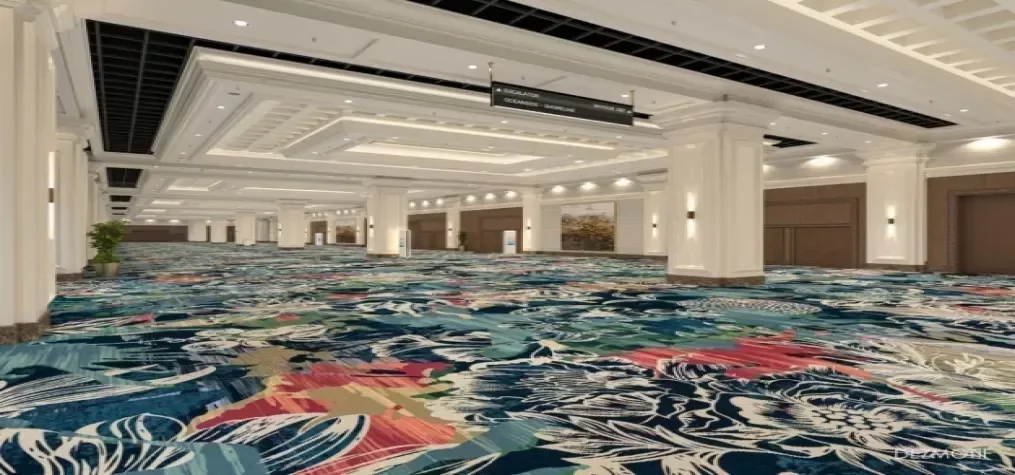Green Interview: Gwen Migita, Social Impact & Inclusion Vice President and Chief Sustainability Officer, Caesars Entertainment

Caesars Entertainment is an acknowledged industry leader in corporate social responsibility through its People Planet Play framework. In the past few months, the company has made headlines for being named as a leader by the CDP (formerly the Carbon Disclosure Project) for its efforts in reducing emissions and lowering climate-related risk; making a global commitment to combat commercial sexual exploitation of children; launching The Shared Future Fund in conjunction with ImpactNV, to solve for social and economic inequality that underscore Nevada’s most vulnerable populations, and more.
The woman behind these efforts — who was also responsible for launching the company’s environmental strategy called CodeGreen— is Gwen Migita, social impact and inclusion vice president and chief sustainability officer for Caesars Entertainment.
I had a chance to talk with Gwen about her work, and the trends and changes she’s seeing within the hospitality industry and beyond.
You’ve been in the sustainability space for more than a decade. What kinds of changes have you seen in that timeframe?
This is a fun, challenging and a little scary time, but in a very healthy way. I’ve seen more blending of environmental social sustainability with more interest around the governance of a company. It’s now much more of an intersectional approach.
An area that would have been traditionally handled by the legal department or investor relations is now very heavily engaged with the sustainability group. There is more engagement around spaces such as training on areas of inclusion or areas of remediation around human rights. There’s more collaboration between sectors of governments and private companies and activist groups.
Activist investors are asking for more transparency and rigorous data points to be provided. I’ve also seen a lot more interest when it comes to governance and the value of human capital, or how to measure the bottom-line impact of awareness around corporate responsibility.
What impact is this intersectional approach having on events and event planners?
One area where event planners and sustainability officers could and should come together is to find a way to invest more, and agree to, shared outcomes to considerably reduce food loss waste.
In addition to the food loss and waste, in the leisure, meetings and hospitality industry historically there’s been more of an expectation regarding the level of antibiotics that are in the food — it goes well beyond organics or the distance that the food might have traveled to get to the table.
If there’s interest in seeing more of that, there’s a mitigation of cost that comes into play. For example, Caesars shifted to 100-percent cage-free egg supply and made the decision to absorb the incremental costs each year over a period of five years. That level of education on both the choices and the impact (both environmentally and financially) is helpful for both meeting planners and certification bodies.
Have you seen any change in event planners’ awareness of or concern about sustainability?
There’s more awareness of the big issues. One area where I see a blending of these is food waste reduction and sustainability with food scarcity. We’ve had the downstream, post-consumer use, and what happens with hot food recovery and meetings, but it’s shifting to an upstream, entire value chain approach to food scarcity.
This whole movement has been affected by increasing awareness around mega-issues such as Year 2030: It’s expected that the world will be short of food by then. There’s substantial waste in the value chain right now – from the time it leaves the plant to the factory or the field to the plate, roughly 25 percent of the food is lost. With seafood, it’s estimated that in the next 10 years, two-thirds of sea life may be gone.
The big picture encompasses how and where one procures food, how and where we would recommend buying or planting or even supporting certifications from the grower through the manufacturing through the logistics to all the touchpoints: warehousing, transportation, preparation and so on.
It’s shifted significantly even in the last two years to a much more granular viewpoint. Where the question used to be, “Do you have a supplier diversity program?” now it’s “What percent of your spend is with X type of supplier with specific certifications, or what extent are you seeing attrition or growth in a specific sector?”
There are so many areas of concern now. How does Caesars determine what to focus on?
Multiple times a year, we have an internal scan of our own environmental social governance scorecard. We’ll look at leading indices such as the Dow Jones Sustainability Index, along with boutique or sector-based areas such as Green Key Meetings and do a gap analysis to determine where we should focus our efforts.
For example, we’re seeing more of a movement around inclusion and particularly invisible or non-physical disabilities and the policies and expectations of venues and companies – that’s an area we’re shifting a bit deeper into in 2019.
Have these causes always been important to you in your career and how did you get to where you are now?
I’ve always been into community-based work and have always been highly involved personally in the LGBTQ movement on a local and national level around policies and corporate responsibility. I was a research consultant for about nine years, then applied for the chief of staff role with the then head of government relations, CSR and communications at Harrah’s (which later rebranded to Caesars Entertainment).
That was 13 years ago when this space was just starting to take shape. I had the opportunity to really form my own role, write my own job descriptions. At that time, the environmental side of things and activism were very separate, so it’s been a fascinating shift. Getting the support of the company has really been why I continue to love what I do and have stayed with them for so long.
What’s in store for Caesars in the future sustainability space?
We’ll continue the work around how we back into our responsibility in the year 2030 or 2050 when it comes to climate action. So, activating our science-based goals, which is essentially being at zero carbon impact in the year 2050 regardless of what size we are at.
Caesars is launching a six-city Economic Equity Tour across the U.S. in 2019 and hosting webinars on economic equity as well. Tell me more about this.
Equity is our intersectional approach to long-term corporate responsibility goals. The blending of diversity with equity inclusion is fascinating. Companies have such an opportunity to advance the work of activist groups and of populations that continue to face the same or similar challenges as they did a few decades ago.
We’re integrating more of this work around supplier diversity and economic equity around workforce development for mid- to small-size businesses that are minority or women-owned. Our economic equity tour will also cover what economic equity means when it comes to our operations in Vegas, Louisiana, Baltimore or anywhere else. It’s really taking and blending very different disciplines into a very strategic approach to equity.
Don’t miss any event-related news: Sign up for our weekly e-newsletter HERE and engage with us on Twitter, Facebook, LinkedIn and Instagram!


Add new comment